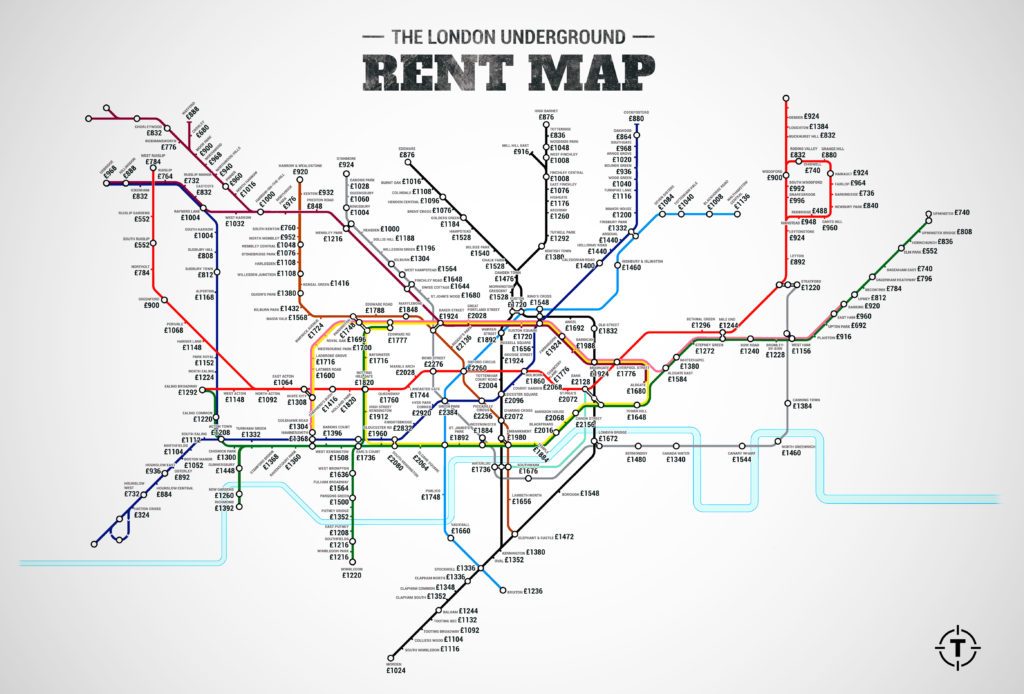Is it worth relocating to London as a software engineer?

Introduction
When a man is tired of London, he is tired of life; for there is in London all that life can afford. – Samuel Johnson.
Now, whether you take your truth from the lyrics of The Clash; that “London’s Calling from the far away town,” or from the words of Samuel Johnson; that “London is a great city, and a city where there is a home for everyone”, I am still surprised by the number of software development professionals I speak to who are reluctant to make the move and call the nation’s capital home.
Whether that stems from fear of the unknown, or the myths around how much it costs to call yourself a Londoner, I’m not sure, but in this blog I am going to shed light on some of these myths and reveal the truth about living in London.
While most people will be able to take something from this blog, it is primarily aimed at those software engineers who would be classified as tier 1, or top of their field; those capable of passing an interview at the likes of Facebook, Google and Bloomberg. Not sure if that’s you? A good place to start is: www.quora.com/What-is-the-software-engineering-interview-process-like-at-Facebook-London
Myth 1: London is way too expensive
Well yes, London is expensive – easily the most expensive city in the UK (16% pricier that Coventry which ranks 2nd); BUT when you compare the overall cost of living in London to other cities globally, London ACTUALLY featured a measly 22nd in 2019, with Hong Kong, Singapore and Paris taking the joint top spot.

Let’s start by examining the cost of living in London for a software engineer, beginning with what a software engineer earns. The good news for any software engineer is that, on average, you’ll earn well above the average mean salary in London. (Government statistics show this as £36,000 for 2020, while the average for a London-based software engineer is £52,900 in 2020.)
Many developers who are toying with the idea of London tell me: “Finance isn’t my first choice, but I’m looking at working in finance in London because it pays more.” Well, yes – traditionally the financial sector boasted the highest compensation. HOWEVER, more recently we have observed top-level London technology companies competing on salary with leading hedge funds and banks when hiring the best developers. So, if you’re a developer thinking finance isn’t your first choice of industry but you want maximum earning potential, this is further proof that London is the place for you!
What does a typical software developer offer look like? A recent offer from a leading hedge fund for a software developer with 10 years of experience included:
- £120k basic salary
- £80k guaranteed minimum bonus
- £20k sign-on bonus
Which puts the first annual minimum compensation in London at £220k. Another offer received recently, from a large non-financial tech company for a tier 1 senior engineering candidate (relocating to London may I add), was for £150k base plus equity.
So what’s the bad news? These offers are at the top end of what we see for tier 1 candidates in London, and not necessarily the norm. More typical salaries for a VP-level developer in one of our tier 1 banking clients – and increasingly within start-ups and tech companies – would start from £85-90k. But even after tax that still leaves you with £58,039 disposable income (and that’s before any bonus or additional compensation is paid!!)
But it’s not always all about the money! Most permanent software development jobs in London come with a range of additional benefits, including:
- Private healthcare – often with the option to add your family!
- Life insurance
- Pension – it is now legally compulsory for all employers to contribute at least 3% to employee pensions
- Paid holiday / sick days – minimum of 25 days
- Gym membership
Oh, and if you’re worried about your rights as an employee in London, don’t! Britain has some of the most extensive laws and policies globally to protect the rights of all employees. None of this hiring and firing you see in the ‘Wolf of Wall Street’. Don’t believe me? Take a look: citizensadvice.org.uk/work/rights-at-work
What about long-term growth? Well, it’s not only strong initial salaries the London technology sector has to offer, but, due to the strength of the technology industry in London and the demand for strong developers, you can also look forward to some of the fastest and strongest career progression anywhere in the world (which, might I add, has only grown since Brexit). London is second only to the US (which has other issues, such as visa limitations, and higher tax payments, etc.) when it comes to strength, investment and opportunities within technology. In fact, in 2019, the UK received the largest amount of global investment into technology; a whopping £10.1 billion, beating both the US and China! All of this means your opportunities for promotion, pay increases and new projects are never-ending.
When you are ready to move on or to examine future options, speaking to a recruiter is always a good place to start. Even if you aren’t actively looking, we are always happy to give you an update on the London market, help with interview prep or we can even provide a free CV review.
Myth 2: I have children, and the school system is overcrowded and expensive
This is one of the funniest comments I hear; the UK actually boasts some of the highest standards of free education in the world, available to all children aged 5 – 18. It also comes with a list of extensive laws in place to ensure the standards remain high; for example, legally, class sizes in London cannot exceed 30 children.
But if that’s not enough assurance, then you can always choose private school. While there is little wrong with the state-provided education system in London/UK, generally speaking, those who can afford to send their children to private school in London do. Private education usually offers benefits such as: smaller class sizes, a wider range of extra-curricular activities and, statistically, a better chance at getting into a top level university (according to The Independent, private school pupils are twice as likely to attend a red-brick university.
And the cost? Well, the average private school fees in London start at around £13,341 a year for one child (with most schools offering discounts for siblings at the same school). While we see the odd exception, most companies don’t include covering the cost of private schooling in the terms of a software developer job offer. This is because they don’t need to due to the high standards of state-provided education. The proof? My sister attended state-funded school for her education and achieved straight A*s – well-surpassing my own private school education results.
If this hasn’t reassured you sufficiently, then check out the Office for Standards in Education website for more information on specific areas and schools: gov.uk/government/organisations/ofsted.
Myth 3: I can get a much nicer (and bigger) house for my money elsewhere
This comment is like saying, “I can buy 25 bottles of Cava for the price of 1 bottle of Dom Perignon, so why would I buy the Dom Perignon?”
Yes, true, and you could buy a mansion in rural Bulgaria for the cost of a 1-bed flat in London, but the quality of living, local services and facilities will be non-comparable, not to mention the commute would be horrible!
So a rough guide to affordable renting/buying is below…
We all know that renting or buying a property is the largest expenditure you will face wherever you live, and in that respect London is no exception. Rents in London are on average the 18th most expensive globally. If you are moving by yourself and looking to rent in London, there are now numerous sources to find properties; with online services such as Airbnb monthly rentals and SpareRoom becoming increasingly popular. The property market in London is always booming and actually boasts one of the highest ratios of estate agencies-per-resident ratios, with 66.5 agencies per 100,000 residents, so there are always options available to you!
While there is an abundance of sources for properties, the exact cost really depends on the style of property you are after. While average prices in London can dip as low as £450 per month for a double bedroom flat share in North/West London, to rent just a one-bed property can cost as much as £1100 a month, with inner central London costing on average £1300 per month for a one-bed flat.

However, another great thing about London is the choice in location!! Many people when they move to a new city will already have a rough idea of where they want to live; be it close to work, friends or a favourite pub, for example. London boasts one of the world’s most efficient transport networks – which means you can live 30 miles away (where rent is cheaper), and only be a 30-minute commute from the city centre.

Another one for the pro-London list?
London has one of the best public transport systems in the world! You can travel by bus, tram, boat or tube, and for those of you considering a relocation with a family, children aged 0 – 11 travel for free on all Transport for London (TfL) transport.
The tube is traditionally the most popular form of transport in London, and by far the fastest and easiest way to travel; with some neighbouring stations (such as Covent Garden and Leicester Square) being only 260m from each other. However, other methods such as cycling are becoming increasingly popular, and with public-use ‘Boris Bikes’ on nearly every corner, it’s never been easier!
And briefly: what if you aren’t moving on your own?
Moving with your family? We would recommend renting for at least your first year in a new city, before committing to buying a property. On average, three-bed properties in London will cost anything from £1,312 pcm to a whopping £5,000 in areas such as Mayfair. To give you more of an insight, the link below has a more detailed guide to the cost of renting in London, with an interactive map, so you can narrow down options by location, cost and size. london.gov.uk/what-we-do/housing-and-land/improving-private-rented-sector/london-rents-map
Myth 4: Taxes are too high
Tax, everyone’s favourite subject. (If you would like to spend the next 3 hours reading about taxation rates in the UK then I’ll refer you to the government website: https://www.gov.uk/browse/tax.)
But in simple terms: middle-class British (and London) residents – according to a survey done by the Guardian in 2018 – actually enjoy some of the lowest overall taxation rates globally across all advanced countries – including Australia, the US and Europe (this includes comparing property, income and duty tax). And if you want to get really thrifty and pay less council tax every month, move to Wandsworth, Hampshire, or Hammersmith – residents pay some of the lowest council tax across the whole of the UK!
Do also bear in mind that the comparatively low tax you will be paying in London funds the free, world-class education for your kids, your free healthcare, as well as defence and police funding to ensure your safety too.
Myth 5: Brexit means Brexit!
Well that’s one myth I’m not even going to attempt to address, but suffice to say, nothing has changed and from what we are seeing nothing big will! But, if it does after our formal exit from the EU on 31st Jan, I’ll be back to add to this – in the meantime, if anyone needs further information there is a special section of the government website to answer all of your questions: https://www.gov.uk/transition
Myth 6: It’s not my home country
While I’m not going to try and convince you that London will feel just like your home country if you move, London does boast one of the most ethnically diverse cultures in the world. Nearly every nation has a ‘home from home’ in London, whether that’s Russians in Kensington, Chinese in Chinatown or Brazilians in Bayswater. There are even Polish nightclubs and pubs selling only Polish beer, so while no, it is not your home country, city or town, you don’t need to look far to find your favourite flavour of pierogis anywhere in London.
If that’s still not as good as the real thing London has the busiest airport system in the world, with 6 major international airports in the city alone and another 34 across the UK. Combine that with as many as 9,000 flights leaving the UK a DAY in 2020, home is never too far (or too expensive) to get back to.
Visa Admin:
As of January 2020, there have been no changes to who needs one, and how to go about obtaining a working visa in the UK. If you require tier 2 sponsorship to work in the UK, then my advice is to speak to a recruiter or apply for jobs at bigger firms first.
If you are unsure whether you need a visa or an employment letter to work in the UK, or who in your family may need one, there is an easy questionnaire found here https://www.gov.uk/check-uk-visa, which should cover every possible nationality and scenario.
Myth busting: to sum up
Hopefully this has gone some way to dispel some of the myths around relocating and living in London as a tier 1 software engineer. If not, well there are a number of helpful guides here: familymovingtolondon.com/, expatforum.com/expats/britain-expat-forum-expats-living-uk/, which can help to answer any other questions or concerns you have.
In addition, if you are a software engineer and you are now interested in a move to London, then feel free to give us a call on 02031379570. We will be happy to tell you about the current market (and bust any other myths about London life you may have).
Oxford Knight is a technical recruitment agency. None of our consultants have written a line of code... yet. We apologise if this article doesn’t keep some purist happy, but we’re trying to build a new generation of technical recruitment agencies…. We listen, participate, and deliver.